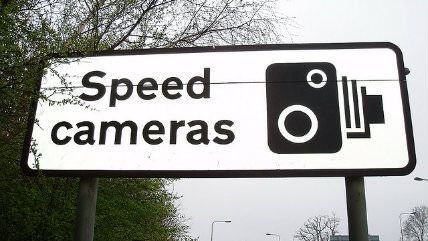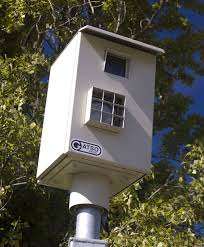D.C. Lines City Coffers With Arbitrary Traffic Tickets


Asset forfeiture is not the only means for law-enforcement agencies and municipalities to line their coffers. From Ashley Halsey III, writing in today's Washington Post, we learn the sordid details of Washington, D.C.'s capricious parking and traffic ticketing practices:
In Washington, D.C., where issuing traffic citations is a $179 million-a-year business, drivers get speeding tickets for violations they don't commit and for vehicles they've never owned.
According to a recent audit conducted by D.C.'s inspector general, the District resembles a "Wild West" of traffic and parking enforcement, thanks largely to its often arbitrary practices of issuing tickets. Speed cameras in particular come under close scrutiny. The District uses 87 speed cameras—and counting—in order regulate traffic speed on its roads, many of which are multilane thoroughfares. When a speed camera captures more than one vehicle, it's up to a department analyst to decide which vehicle deserves the ticket:
One reviewer told the inspector general that the speeding vehicle is "usually the closer one" to the speed camera. The report said there was "a lack of precision and certainty [as to] which vehicle was speeding."
The onus of proof is on the ticketed motorists, who often find it near impossible to muddle their way through the morass of unpredictable ticketing criteria in order to contest the tickets. But District officials seem to like this reversal of the common law presumption of innocence. One such official is quoted anonymously in the report as saying,
One of the beauties of parking, it's like the [Internal Revenue Service]. If you get a parking ticket, you are guilty until you have proven yourself innocent…And that's worked well for us.
Indeed it has, with moving violations and parking tickets becoming a District cash cow. D.C. Police Chief Cathy L. Lanier claims that the cameras save lives. But this 2012 article from Watchdog.com argues that aggressive ticketing and speed enforcement offer little in increased safety, but much in increased revenue.
And that revenue has to come from somewhere. As Brian Doherty argues, aggressive arbitrary policing of minor and petty infractions is effectively a regressive tax disproportionately affecting the poor, who often do not have the means to pay or contest tickets. While tickets might be an inconvenience and a slight expense for the middle and upper classes, the poor often face dire consequences when penurious cities turn to ticketing as a reliable revenue stream. For the poor caught in a tangled and expensive system, the official platitudes about public safety are little solace.
Show Comments (48)